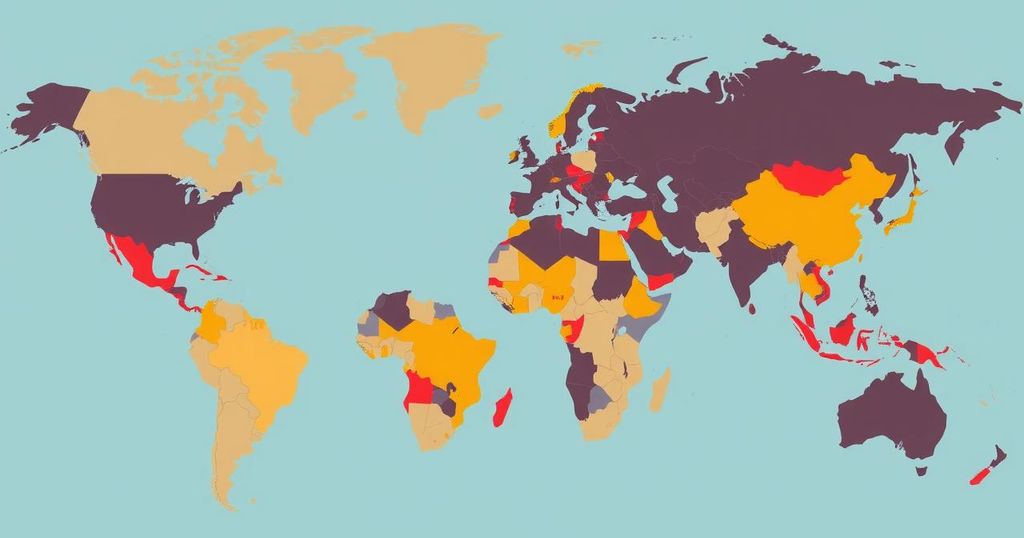The Trump administration is considering a travel ban affecting 43 countries, proposing outright bans on 11 nations, including Afghanistan and Venezuela, and further restrictions on 10 others. An executive order mandates the compilation of this list, with contrasting implications for existing visa holders and diplomatic relations. The decision to reinstate travel bans reflects security concerns and potential disruptions in foreign policy.
The Trump administration is contemplating a broader travel ban targeting citizens from as many as 43 countries, extending beyond previous restrictions. A draft list indicates an outright prohibition on entry for citizens from 11 identified nations: Afghanistan, Bhutan, Cuba, Iran, Libya, North Korea, Somalia, Sudan, Syria, Venezuela, and Yemen. This information emerged from officials who requested anonymity due to the confidential nature of the discussions.
Accompanying the red list is an orange list consisting of 10 nations that would face entry restrictions; while affluent business travelers might be admitted, those pursuing immigrant or tourist visas would be denied entry. This group includes Belarus, Eritrea, Haiti, Laos, Myanmar, Pakistan, Russia, Sierra Leone, South Sudan, and Turkmenistan.
According to an executive order issued on January 20 by President Trump, the State Department was instructed to compile a list of countries necessitating travel restrictions due to inadequate vetting information. The Bureau of Consular Affairs is leading this initiative, with a report due next week, supported by the Departments of Justice, Homeland Security, and National Intelligence.
Previous bans during Trump’s first term remained controversial, with certain nations having been sanctioned. However, the new considerations have raised questions regarding existing visa holders and green card recipients. The administration has faced scrutiny as seen in a recent incident involving the cancellation of a green card for Mahmoud Khalil, a Syrian-born graduate student involved in protests against Israel.
The draft lists are noteworthy, as some countries included, like Bhutan, do not exhibit obvious deficiencies in security or governance. Additionally, travel restrictions on Russia could complicate diplomatic relations, while including Venezuela might obstruct diplomatic efforts relevant to undocumented migrants. Furthermore, a yellow list comprising 22 nations could be issued with a 60-day compliance period to rectify perceived legislative deficiencies, highlighting possible loopholes in citizenship practices.
Notably, President Biden previously rescinded Trump’s travel bans, articulating that such policies contradicted the historical hospitality of the United States. The current proposal to re-establish these bans emphasizes national security measures against potential threats to American citizens and public safety.
In conclusion, the Trump administration’s proposed expanded travel ban emphasizes national security as a primary concern, contemplating restrictions on citizens from a wider array of countries. The inclusion of various nations on red, orange, and yellow lists reflects ongoing challenges related to immigration policy and international relations. The complex implications for existing visa holders and the diplomatic consequences of the travel bans remain pivotal points in the discussion.
Original Source: newsroom.gy






